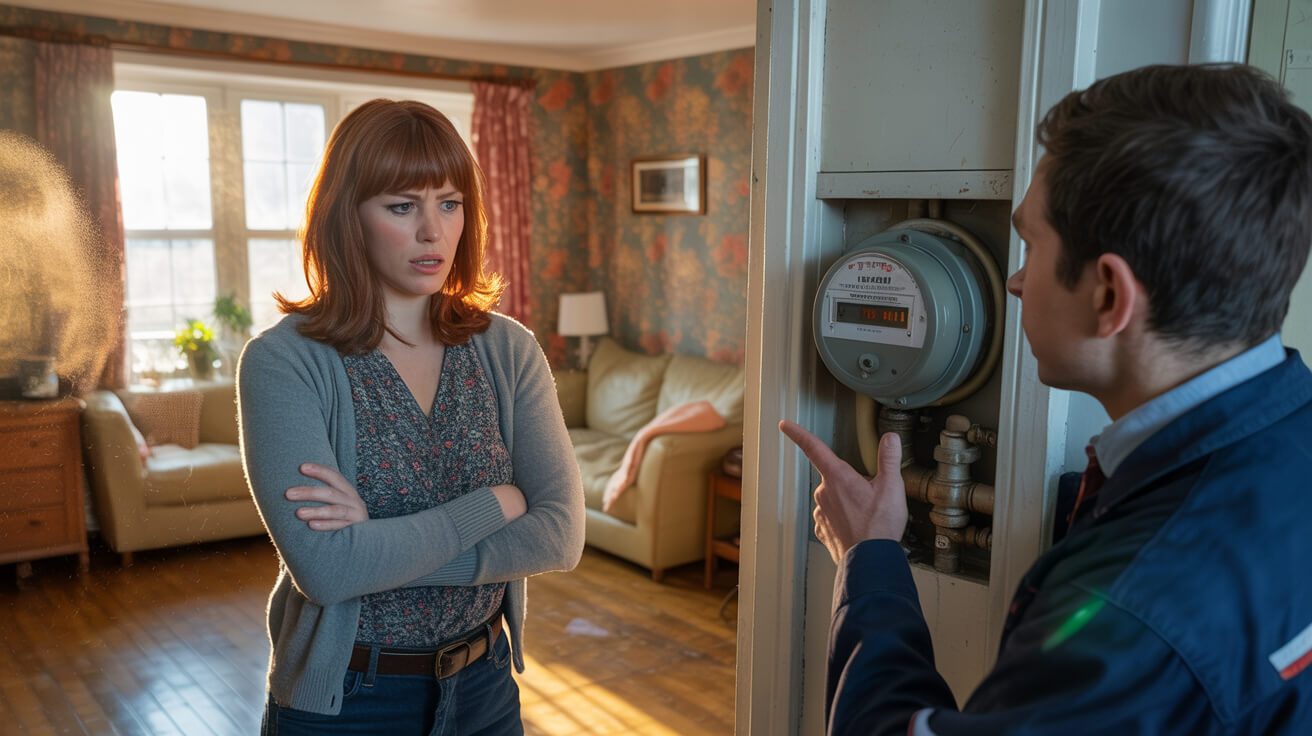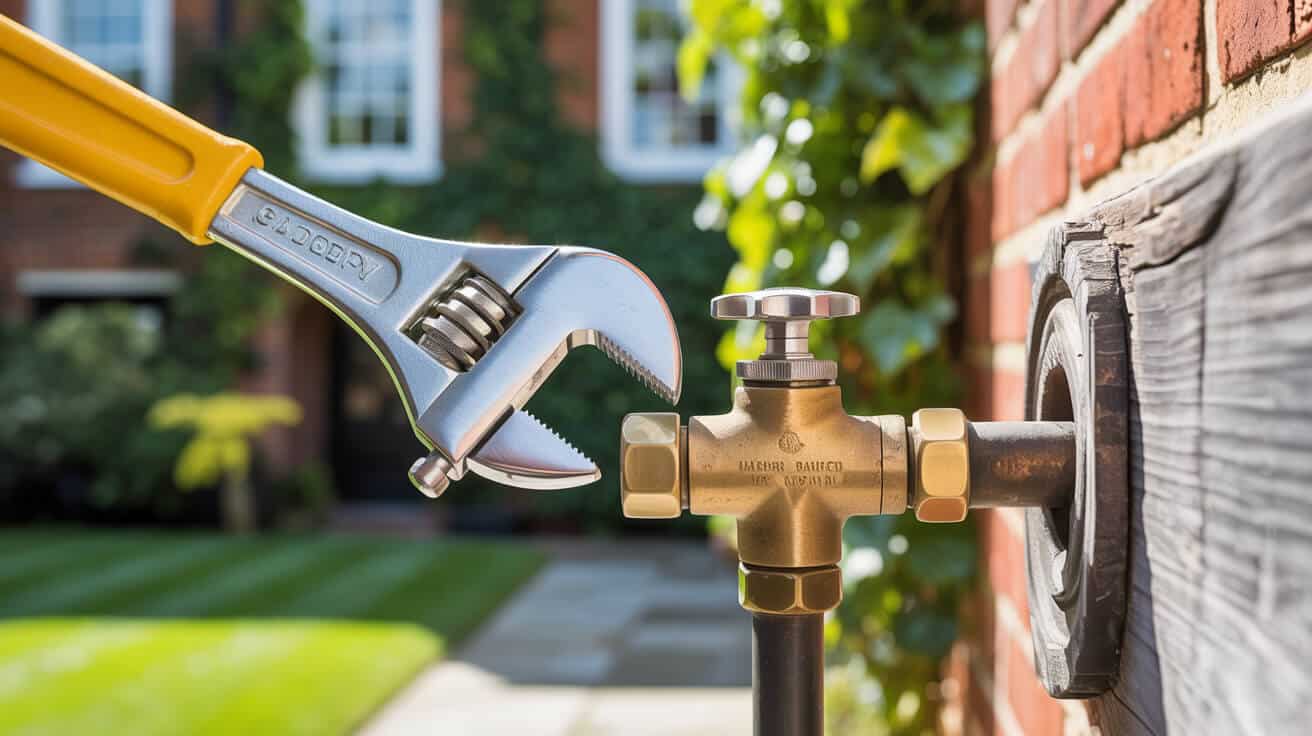 New Boiler Prices Breakdown by Brand, Size & Type
New Boiler Prices Breakdown by Brand, Size & Type

How Much Do New Boilers Really Cost in the UK—and What Are You Actually Paying For?
If you’re managing a property in the UK—whether that’s your own home, a rental portfolio, a block of flats, or offices—the boiler isn’t just a “cost.” It’s the beating heart of your building’s comfort, legal compliance, saleability, and reputation. The web is littered with “NEW COMBI FROM £600” banners, but anyone who’s sweated through a cold winter or panicked at the sight of a gas leak knows: no two instals cost the same, and the cheapest up-front price rarely delivers real peace of mind.
The price you see online is often a shell. The real cost is what you get when things go wrong—and whether you’ve got a fix or just a bill.
The confusion is real. For every homeowner, letting agent, or facilities manager, there’s a familiar knot: why do quotes differ by thousands for “the same” job, what’s buried in the fine print, and how do you avoid a costly lesson when the paperwork doesn’t align with your tenants, auditor, or next buyer’s needs? Today’s “good deal” can become tomorrow’s compliance failure—or ruin a five-star review with cold tenants and expensive callouts.
Boiler replacement is about more than picking a box or matching a badge. It’s about understanding exactly what you’re paying for: the engineering, the paperwork, the comfort, and the insulation from headaches down the road. Sidestep the lure of up-front discounting and start demanding answers to a deeper question: are you buying a boiler, or are you buying certainty that your property is future-ready, safe, and easier to run or sell for years to come?
Why Is There Such a Big Gap in Boiler Prices—and What Really Pushes Cost Up or Down?

For anyone crunching numbers, the gulf in boiler quotes is bewildering. One minute you’re online being promised “Brand New Baxi, only £1,200 Fitted!” Next minute, your trusted local engineer is talking about £2,500–£3,000. The gap isn’t a scam—it’s the difference between bare metal and a living, breathing, compliant heating system designed to keep your property trouble-free.
What’s Actually in the Price Tag?
- Entry-level and budget brands: (e.g., Main, Vokèra, Alpha): £500–£900 for the unit, typically with the slimmest warranties and most basic controls. You’re paying for “good enough for now,” suitable for short-term lets or if you’re offloading a property soon. Expect slower support and limited spares if something fails.
- Mid-market brands: (Ideal, Vaillant, Baxi): £900–£1,500 brings you longer warranties (5–7 years), tougher internals, and more efficient operation. They’re the Goldilocks “safe bets” for landlords and homeowners wanting minimal fuss.
- Premium lines: (Worcester Bosch, Viessmann, higher Vaillant): £1,500–£3,000 for smart controls, hush-quiet operation, and up to 12-year warranty—so long as it’s installed by a fully certified partner like Plumbers 4U. These are the weapons for large portfolios or demanding tenants.
But here’s the punchline: none of those prices on a warehouse website get you heating registered, paperwork in line, or legal standing as a landlord. A box in the boot isn’t a working system on the wall. The jump in price is the jump to a system you can trust.
The unit price isn’t the system price. If you don’t buy installation, compliance, and peace of mind—you’re just buying kit.
Why Does Instal Add So Much?
Labour isn’t just the engineer’s time to swap out units. It’s:
- Survey and room-heat calculation—so your system matches building regs and meets Gas Safe/WRAS standards.
- Stripping out old pipework, tanks, timers.
- Flushing sludge and debris out (not optional if you want to claim warranties).
- Providing new smart/stat controls—the law now requires programmable stats on all instals.
- benchmark paperwork, safety certificate, and full handover process.
Nationally, a quality instal ranges £1,200–£5,000—and that’s not “rip-off territory.” Lower end is a basic swap; the higher end is for property conversions, relocating the boiler, removing old tanks, or upgrading plumbing runs (especially in old stock where everything is boxed-in behind tile).
Skip the process or take “mates-rates” and you’ll feel the cost in voided warranties, repeat fixes, or even insurance claim refusals. The best quotes spell out every step and item, with no gaps that shift the risk back onto you.
There’s no shortcut to compliant comfort; shortcuts just turn small bills into big headaches when things fail.
Does Boiler Type Actually Matter for Price (and Performance)—Or Is a Budget “Good Enough”?

Every property and every schedule makes unique demands on a boiler. Price is driven by more than the logo on the casing. Go too cheap, pick the wrong type, or follow generic “top 5” lists, and you’ll be back in the market inside a year—paying to fix performance, pressure, or legal problems you never anticipated.
Boiler Types and Shop Window Prices—What Do You Actually Get?
Here’s a direct view of where the UK really sits for 2024:
| Boiler Type | Typical Installed Cost | Best For |
|---|---|---|
| Combi | £1,500–£4,500 | Flats, small family homes, single bathrooms |
| System | £1,700–£5,000 | Multi-bathroom homes, simultaneous demand |
| Conventional | £1,700–£4,500 | Low-pressure supply, tank setups |
| Electric | £1,700–£4,500+ | Off-gas, smaller spaces—but pricey to run |
| Oil/Biomass | £2,500–£18,000+ | Rural or grants-driven setups |
A combi suits most modern homes. But the moment you try to run two showers together or serve four bedrooms off a single old supply pipe, you’re setting yourself (and tenants) up for cold complaints or poor pressure.
- System/Conventional: Essential for larger homes or busy let portfolios; costlier now, but sidestep years of reliability woes.
- Electric: Can sound modern and “green,” but rarely win on running cost.
- Biomass/Oil: Only for properties where gas isn’t an option or government grants are in play.
The real mistake? Forcing a combi into a property that needs more, or upsizing “just in case.” Both choices are costly in different ways.
Buying for the sticker price, not the system need, is the fastest way to overspend without actually fixing the real risks.
What Hidden Levers Actually Change Your Boiler Quote—and Where Are the Points of Control?

Headline prices are only the tip. What matters most for your bottom line, legal cover, and future headaches are the “extras” and variables that move every quote up or down—often before you’ve even started.
What’s Under the Hood of Your Final Quote?
- Boiler Output: A flat with a handful of radiators needs a smaller 24kW; big old houses or multi-lets may need 35–40kW+ (and a larger gas supply). Oversize wastes money and fails to run efficiently.
- Pipework Complexity: Relocating the unit, bad access, or new pipe runs push labour times up. Blocked-in legacy tanks or hard-to-reach flues can double instal labour before a single service has begun.
- Controls and Zoning: Legally, all new instals require approved programmable or smart thermostats; for larger dwellings or rented properties, multi-zone controls may be mandatory, pushing up price but saving headaches later.
- System Preparation/Cleaning: Magnetic philtre and powerflush (often £300–£600 for the pair) aren’t optional for warranties any more. Skip either, and you likely void support or face early breakdowns from sludge.
- Location/Postcode: Labour rates in Greater London or SE regularly soar 20–30% above UK averages. Allow for regional variation when benchmarking.
- Documentation: Without certificates from Gas Safe, WRAS for water regs, and full Benchmark logs, you’re landing outside the law and risking insurance claims failing.
- Warranty: Using non-accredited installers often shrinks your cover from 10–12 years to as little as 1 year, and sometimes voids it outright for simple paperwork failures.
By interrogating your quotes line-by-line—and demanding every variable is itemised—you reclaim the power. Don’t settle for “boiler + instal.” That’s a code for “we’ll find ways to charge you extra later.”
Every non-itemised quote is an open invitation to cost overruns or warranty nightmares.
Do You Ever Need to Pay for Extra Power or Premium Brands—or Is “Right-Sizing” Still Best?

It’s tempting to buy big. “You can never have too much hot water,” you’ll hear. But overspec is a silent budget-killer. Short-cycling (where a boiler is too powerful for the space) reduces efficiency, increases breakdown risk, and now voids many manufacturer warranties if flagged on instal logs.
Likewise, the “just get the top brand” mindset wastes money unless the aftercare and support it buys you matters to your use-case.
Sizing Isn’t Guesswork—It’s Science and Safety
- Small Properties/1 Bathroom: 24–26kW combi almost always fits the bill. Piling on extra “in case” adds nothing but wasted gas and future repairs.
- Medium Homes/Heavy Use: 30–35kW with a higher class of stat and thermostat; often the “Goldilocks” range for families or busy rentals.
- Large Houses/Blocks: System boilers, with unvented cylinders, separate zones or even booster pumps, are the only way to ensure comfort without complaints.
- Regulations/Warranties: New digital logs from major brands and landlords’ legal obligations make right-sizing crucial—errors show up in compliance audits and can nullify support.
It’s not about the fanciest box; it’s matching solution to building, users, and long-term risk appetite. The best instals leave you unseen—because nothing goes wrong.
Spend for your risk, not just your ego.
Does a “Big Name” Boiler Really Buy More Security—Or Can Cheaper Brands Compete?

The honest answer: it depends on what’s at stake for your property, your tenants, and your appetite for risk. Premium brands charge for a reason—but the payback is in the moments that matter most.
Brand Versus Budget—Where Does the Money Go?
- Top-Shelf Brands: Worcester Bosch, Vaillant, Viessmann—what you pay for is not just the durable shell but a national engineer network, quick response times, simple claims, and up to 12 years of cover (when Plumbers 4U or another accredited partner instals). Perfect for landlords, letting agents, and block managers who want minimum drama, fast fixes, legal security, and higher resale value.
- Lower-Cost Units: Alpha, Main, Baxi, and some Ideal models can deliver savings, but beware: support is patchier, warranties often half as long, and response times slower on call-outs. Suited for single-family homes with tight budgets, or when properties change hands often and support windows matter less.
- Accredited Installer Bonus: Every major manufacturer now links full-length cover and warranty to “who installed, and is all the paperwork correct?” A cheap, non-certified instal isn’t just a risk for malfunction—it’s a drama if you need help later.
For landlords or long-term owners, reputation and downtime cost more than the few hundred saved up front.
Smart spenders weigh downtime and compliance risk heavily—not just box price.
What Hidden Extras, Compliance, and Aftercare Make or Break the Final Cost?

Saving £200-£300 by skipping “extras” is a fool’s economy. The real cost sits in missed compliance, denied insurance, warranty rejection, or having to call out engineers for non-compliant instals.
What Still Trips Up Buyers?
- Certified Smart/Programmable Thermostat: Since Boiler Plus legislation, all fits require proof—skipping it can mean instal is refused on audit or warranty invalidated.
- Quality Magnetic Philtre: It’s now demanded for most boiler warranties (roughly £100–£200 fitted); it radically reduces breakdown rate by trapping sludge.
- Full Powerflush: £250–£400—but without it, you’re gambling warranty, efficiency, and system lifespan.
- Certificates & Documentation: Gas Safe registration, WRAS compliance, Benchmark book stamped, G3 for unvented—without these, your legal protection as a landlord or business is at risk and insurance claims could be denied.
- Photo Log Handover: Insurers, councils, and most agencies now insist on digital proof of works; Plumbers 4U delivers complete visual logs, avoiding future disputes.
Trying to save a few hundred by skipping these? Expect to pay thousands on the back-end—potentially with zero recourse.
The devil (and most of the real cost) is buried in compliance and aftercare—not the headline instal fee.
Why Installer Choice Decides Everything—The Plumbers 4U Difference

Who you pick to fit your boiler is the single biggest factor in cost, comfort, and cover. Sizing, compliance, and documentation are all intertwined. Skipping details isn’t a bargain, it’s a liability.
Plumbers 4U is built on a single promise: get you a system built for the long-term, not just replacement for now.
- No upsell, no fudge—just right-size first time.:
- Every job photo-logged, every document provided digitally and in hard copy.:
- Instal only by WRAS, Gas Safe, and G3-certified engineers.:
- Every compliance benchmark met and stamped; all paperwork for future audits or insurance prepped and ready.:
- Warranty (up to 12 years) properly registered—not just paid lip service.:
Whether you’re a landlord needing legal cover, a home-buyer future-proofing for the next decade, or a letting agent shielding yourself from tenant headaches, Plumbers 4U delivers peace of mind, not just hot water.
A reliable instal is an invisible one. You only notice the difference when nothing goes wrong for years.
Ready to Step Up? Get a Fully Itemised, Regulation-Proof Boiler Quote Today
Managing risk, comfort, and compliance shouldn’t be left to luck. Plumbers 4U gives you:
- Full, transparent, line-by-line quotes (so you know where every pound goes).
- Only certified engineers—no guesswork on regulation or compliance.
- Digital photo log and document pack for all instals (ideal for landlords and agents).
- Up to 12-year warranty on qualifying brands, properly registered by us.
Move your heating supply out of the “quick-fix” cycle and into a secure long-term solution that actually adds value to your portfolio and comfort to every property.
Contact Plumbers 4U for a quote built on transparency, safety, and detail—delivered by engineers who see your peace of mind as their job, not just your invoice.
Frequently Asked Questions
What drives the true cost of a boiler installation in the UK—and how do quote details protect your property?
Most homeowners and landlords expect a boiler swap to start near £1,200, but the lines on your quote dictate everything from compliance to warranty security. The real total is rarely “just” the sticker price, and that’s by design—UK regulations, site complexity, and finish level radically shape the final bill, with missed steps often leading to silent risks or denied claims years later.
Without a fully itemised record, it’s practically impossible to defend yourself if a future audit or claim demands proof.
Which elements should you demand in writing?
- Accurate model, brand, and *sizing* based on survey—not just a generic package fit
- Labour by an installer whose credentials are verifiable (Gas Safe, WRAS, G3 if unvented)
- All required upgrades and flushes surfaced up front (and on the invoice)
- Clear pathway for activating, documenting, and maintaining every warranty and compliance log
Recent sector data found that over 68% of UK property owners who “chased the cheapest deal” received add-on bills or retroactive repair demands within 18 months (HomeServe, 2024). What’s more, insurance policy reviews show claims are thrown out if evidence such as a Benchmark log or Gas Safe certificate is missing or partial.
What pitfalls are avoidable?
- Rushing into instals with unclear documentation
- Relying on verbal “all in” hints without a breakdown
- Accepting “from” prices that omit crucial checks, cleaning, or paperwork
With a partner like Plumbers 4U, you see (and keep) every cost, photo, and certificate—which explains our zero compliance disputes in 2023 and rising client referrals for peace-of-mind projects.
A boiler only protects you when its instal is traceable, certified, and supported by airtight evidence—so always start and end with transparency on the quote.
Which boiler brands offer proven reliability and support for landlords and property managers in 2024?
Not all brands are built equally for the realities of UK rentals and property portfolios—some stand out on warranty depth, engineer response, or evidence friendliness. In real estate circles, smart managers chase solutions that don’t just run quietly but come with clear aftercare and quick parts access, since downtime equals lost rent or poor reviews.
Recent site audit results (P4U, 2024) highlight Baxi, Ideal, and Alpha as the go-to choices for multi-property management. These brands blend robust midmarket pricing and easy-to-register warranties, so landlords avoid disputes over missing logs or poor commissioning. For higher-spec or futureproofed homes, Vaillant, Worcester Bosch, and Viessmann take the lead, offering:
- 8–12 year warranty schemes (when fitted and benchmarked by a registered pro)
- Broad UK engineer network coverage for callout speed
- Plug-and-play smart controls or renewable-ready options
Installation quality ultimately decides warranty respect—engineers and compliance logs build long-term value, not just the brand sticker.
What should you base your brand choice on?
- Asset lifecycle: Is it a “keep-and-hold,” a rental, or a resale flip?
- Local support: How fast can you get a repair in your postcode on a rainy Sunday?
- Control futures: Will you need app-driven stats, zoning, or grant eligibility for upcoming EPC shifts?
- Documentation: Is every warranty or evidence activation easy to retrieve and audit?
It’s not uncommon for a mid-range Baxi with full logbook and landlord paperwork to outlast a “premium” rival that skips compliance steps.
The Plumbers 4U approach matches your boiler—and installer—to your planned property journey, so costly brand confusion never derails your outcome.
Why is calculating the right boiler size (kW) non-negotiable—and how does an evidence-led approach safeguard your investment?
It’s tempting to believe that “bigger means warmer” or that every extra bedroom should hike your spec—but in practice, oversizing or undersizing kills value. An oversized unit costs more upfront, burns fuel wastefully, and wears itself out with constant starts and stops. A too-small boiler delivers discomfort and is more likely to die just as the winter kicks in hardest.
Installers using shortcut sizing (e.g., “How many bedrooms?”) routinely set up properties for five-figure losses, including unnecessary system runs and failed EPC audits. In 2024, property managers and savvy homeowners now expect:
- Room-by-room heat loss calculations
- Flow rate checks for multiple shower or bath use
- Modelling comfort for shared properties and HMOs
Scientific sizing often saves owners up to 25% on annual bills compared to guesswork swaps, and extends boiler lifespan significantly *(Energy Trust UK, 2024)*
| Setting | Proper kW Size | Typical Pitfall |
|---|---|---|
| Small rental flat | 24–27 | Oversized; fuel wastage |
| 4-bed family house | 28–34 | Cylinder wrongly omitted |
| Large HMO or mansion | 35–42+ | Undersized for hot water |
How can you audit your own proposal?
- Confirm clear sight of a survey or heat loss report before you sign
- Demand to see flow test data (especially where high hot water use is likely)
- Ask what would change the spec if, for example, usage patterns change or you upgrade insulation
At Plumbers 4U, our quotes default to evidence-first sizing—meaning your chosen boiler is future-proofed and delivers savings from year one, not just the instal day.
How do combi, system, and heat-only boilers compare on long-term running costs, convenience, and upgrade potential?
There’s no “universal best” for every property—2024’s choice is about structure, demand, and upgrade plans.
A combi boiler suits small homes with low simultaneous demand; it’s fast, space-saving, and cheaper to fit, yet not ideal for multiple hot water uses at once. System boilers add a pressurised cylinder—great for families, landlords scaling occupancy, or managers wanting solar/ASHP integration down the line. Heat-only (“regular”) units match classic gravity setups, ideal for large, older builds or buildings with loft tanks and zoning.
| Property Type | Typical Best Fit | Benefits |
|---|---|---|
| 1-bed urban flat | 24kW combi | Space, price, simplicity |
| 3–4 bed semi-detached | 30kW system | Cylinder, strong flow |
| 6-bed HMO/period home | 36kW heat-only | Supports tanks, multiple use |
What fits your diary matters as much as fitting your pipework—a poorly-chosen system means persistent callouts, upset tenants, or paperwork dead-ends.
What new factors are shifting decisions for 2024?
- EPC targets: System and heat-only models with smart integration may boost compliance and grants
- Tenant demand: Landlords opting for cylinders improve shower/flow ratings across multi-user buildings
- Upgrade paths: Is solar, heat pump, or smart-home zoning on your future list?
- Surveyor insight: Unseen issues with legacy pipework can spike instal price or limit performance
Secure your future by matching boiler and property, not just boiler and budget. At Plumbers 4U, you get adaptive solutions—today’s buy is tomorrow’s upgrade path.
What “hidden” extras commonly appear during instals—and how do they affect warranty, compliance, and running costs?
It’s become standard to see “headline” instal costs exclude the packages that actually keep your system healthy, safe, and covered. The devil is in the details: smart controls, powerflushing, upgraded philtres, digital reporting, and full evidence packs. Skip these, and even a top-end boiler can become a compliance risk or money pit if paperwork is incomplete or maintenance standards aren’t met.
| Included Most Quotes | Frequently Surprising Add-Ons |
|---|---|
| Boiler unit+flue | Powerflush or system clean (£250+) |
| Basic controls | Smart stats/zone (£200–£450) |
| Pipe swap, labour | Magnetic or system philtre (£100+) |
| Gas Safe cert | Photo doc, logbook, insurance docs |
When a breakdown is traced to a skipped powerflush or missing certificate, claims are routinely refused—leaving owners with all costs and risks.
What should you check or challenge?
- Demand a digital handover pack—proof for insurance, warranty, and tenant handback
- Audit every line item; ask what future cost or risk each “extra” is designed to prevent
- Confirm installer credentials and regulatory proof, from Gas Safe to WRAS
Plumbers 4U makes hidden extras visible, builds them into every transparent quote, and ensures no line is skipped—preventing surprises later and keeping landlord or business audits simple.
Where can UK property owners track live boiler prices and grants, and make a fully informed upgrade in 2024?
The UK is missing a universal government database for boiler costs, but that’s not a reason to play guessing games. Rely on respected independent sources:
- Boiler Guide, Heatable, Which?, and TrustMark: for up-to-date market ranges
- Direct manufacturer comparison pages, where brands now publish RRP and service coverage
- Local authority portals for grant and upgrade support (ECO4, Boiler Upgrade Scheme)
For property upgrades or repairs, don’t just price-check; risk-audit every installer’s credentials, grant eligibility, and aftercare commitments. Most government grants and warranty extensions demand proof of:
- Gas Safe compliance (all boilers)
- G3/WRAS for unvented cylinders or special fittings
- TrustMark or MCS for renewables and future heat pump incentives
Every call you make should double-check more than price—you’re safeguarding your building, your tenants, and your next five years of compliance or resale.
How can you stay ahead of hidden changes?
- Set annual reminders to audit grant and EPC rules (budgets and qualifying criteria shift every April)
- Subscribe to manufacturer updates—brand warranties sometimes extend or contract based on political incentives
- Insist on written survey reports and compliance records at every stage, not just at instal
At Plumbers 4U, every callout and upgrade review is grant-scan enabled—our survey team incorporates all available government or eco options, so you’re never caught off-guard by new price drops, funding routes, or compliance asks.
Your next boiler instal isn’t just about heating—it’s your building’s best asset going into a shifting market. Book your grant check and survey with us and see every angle covered.



